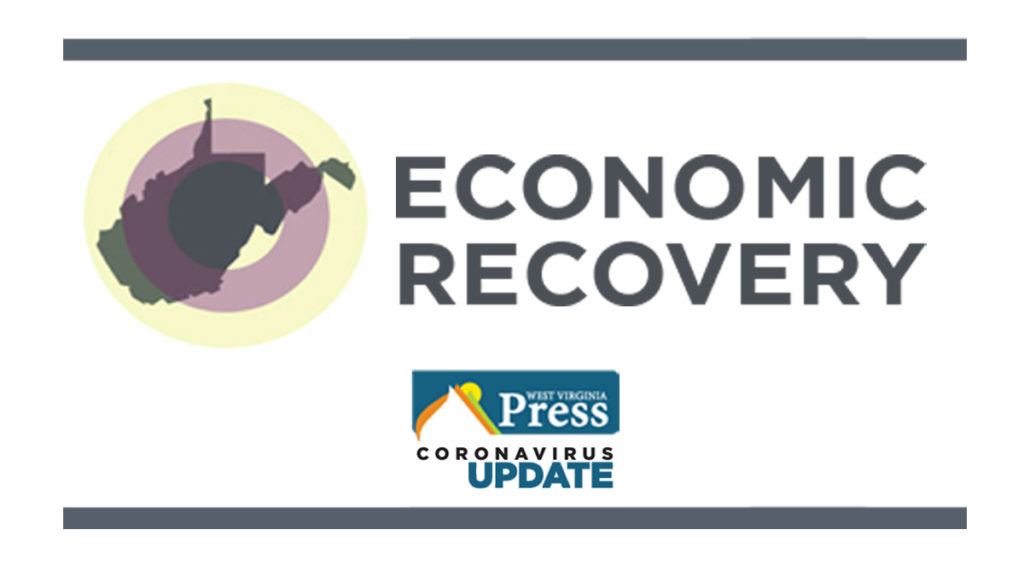Impact on sales and operations differ at dealerships across the state
By Lexi Browning
West Virginia Press Association
CHARLESTON, W.Va. — Chris Miller knows a thing or two about cars, but like other business owners, he didn’t have a repair manual for handling coronavirus’ impact on the local economy.
Co-owner of the Dutch Miller auto dealership chain, which his grandfather founded in the late 1960s, Miller’s family brand has become a household name in regional car talk.

His grandfather, who was born on a dirt floor in Bear Creek, Kentucky, went on to live “the American Dream” after fighting in World War II and the Korean War, Miller said. He worked professionally at a local Chevrolet dealership, and in 1967, bought out the business, creating what is now known as Dutch Miller Chevrolet.
Now, more than five decades later and during an ongoing pandemic, Miller is following in the footsteps of his grandfather, making opportunities out of challenging circumstances.
As the coronavirus pandemic began to surge throughout the nation earlier this year, Miller and his staff were proactive, taking measures to ensure that their employees and customers were safe.
“We offer online vehicle sales now, which is something we’ve never done before,” Miller said. “All the vehicles are priced online, but people can actually have a zero contact buying option to find the vehicle they want, work at financing, go through the process of verifying who they are and have the vehicle delivered to them without ever coming to the car dealership. It’s revolutionary.”
According to Miller, comparing March, April and May of 2020 to the same months in 2019, his dealerships did not see a decrease in sales. Service and parts, however, have decreased significantly due to divided work shifts.
Having manufacturers’ recent incentives, such as rebates and zero percent financing for 84 months, made buying a car “very appealing” for customers in recent months, Miller said.
The dealerships have continued to sell a consistent mix of new and used cars, he said, but for dealerships, used cars became more difficult to secure based on limited supplies and rising demands.
“There was a huge interest in pre-owned vehicles,” Miller said. “You had a market that was pent up and you couldn’t acquire different vehicles for several months because auctions were closed down, so the only way you could acquire was through trade-ins, so the value of pre-owned vehicles has increased. If people are looking to trade in their old ones, right now is the perfect time because the values of used cars have actually gone up.”
At Charleston Mitsubishi, owner Charles Rashid said he doesn’t anticipate sales to recover to a pre-coronavirus level for another two years. Rashid owns dealerships in Clarksburg, Charleston and Beckley, West Virginia, and one in Lexington, Kentucky.
“Business essentially stopped,” Rashid said. “We’ve always been a top 20 dealer in the country, and we tried to stay open during the virus by having a touch-free delivery for picking up and dropping off, sanitizing before and after servicing the vehicle. We had a complete no-touch policy.”
But business had slowed significantly, resulting in the layoff of 30 employees, he said. Rashid applied for the Paycheck Protection Program, which was created by the Federal CARES Act to assist small businesses in maintaining and rehiring laid off employees and assisting in financially stabilizing the businesses during the pandemic.
“It helped us hire every single person back; thank God,” Rashid said. “Our business is still only at 25 percent of pre-COVID [sales], but we do have our entire staff back.”
For Miller, ensuring that all employees stayed employed at his dealerships was also a top priority.
“Our goal was to make sure no one lost their job; not one person,” Miller said. “We wanted to keep all employees in place and use that for the ability of further expansion because we’re a growing business. That was very important to us and to our people. We paid anybody that wanted to work 115 percent of their average 2019 earnings, and anyone who didn’t [feel comfortable working] and was fearful or needed to stay home for an elder loved one at a higher risk than most people, we paid them 75 percent average 2019 to stay at home and care for their family members.”
About five percent of employees elected to stay home, Miller said, and the rest remained intact.
In mid-March, businesses across the Mountain State began to shut down, fearful of the pandemic and the uncertainties that accompanied it. With the shutters came layoffs and a surge of unemployment insurance applications, which overwhelmed Workforce West Virginia’s system, activating National Guard members to assist in processing the backlog of applications.
Rashid said, “If it wasn’t for the PPP and Small Business Administration, we’d not be able to reopen.”
Rashid said it was crucial to take care of employees at a time when so much was unpredictable.
“We closed in March and in April hired back [the employees],” Rashid said. “We wanted to get employees back so they wouldn’t have to worry about feeding their family or where their next check was coming from.”
Many employees, he said, still haven’t received their unemployment benefits weeks after they applied.
When Governor Jim Justice issued the Stay-at-Home order in late March, many of Charleston Mitsubishi’s partner businesses closed, Rashid said, preventing the dealership from getting certain repair services done for customers’ vehicles.
“On the other side, [coronavirus] affected a number of outside vendors, such as body shops, and because of COVID-19, they’ve closed, so we can’t get that kind of work done for customers. It’s caused an increase in expenses because we supply the masks and gloves, and we’re cleaning every 30 minutes and doing extra sanitizing.”
As sales decreased, interest continued to accumulate for the vehicles on the floor. Vehicles are usually acquired in three to four-month supplies, Rashid said, and with few sales, the dealership has not been able to bring in new cars because they still had plenty of inventory that had not yet been purchased.
Though he anticipates the sudden decrease in sales will take a little while to bounce back, Rashid sees an opportunity for new innovations to come to fruition. Devoting extra time each day to sanitization, he said, can also help prevent the spread of the common cold and flu.
“Not everything is bad,” he said. “I’ve wanted to go with an essentially touchless process where customers could look online, be approved online, and I’m working to access vehicles 24 hours a day to test drive, electronically sign the documents and do it at their convenience without having to talk to a salesperson.”
Miller has also seen the auto industry’s sales process change because of the virus.
The technological advances, Miller said, have seemingly sped up in the industry by at least a decade, paving the road to alternative sales methods. Though it’s taken both buyers and sellers time to adjust in an industry that’s traditionally hands-on, Miller said everyone is adapting to the new normal.
“There are certain things that are going to stick with us,” Miller said. “Eventually, there are things we’ll see that just aren’t necessary any longer … I think going through something like this from a broad perspective will show us areas for improvement not only in business, but in government, when it comes to how we respond to medical emergencies in our country in the future,” he said. “It allowed us to see where the deficiencies lie so we can improve them for the next time.”
Moving forward, he anticipates several of the safety procedures they have implemented in the last several months will be adopted more permanently.
“This will accelerate what happens with technology and how customers and car dealers interact in the future, and there may be some cool byproducts of this like the elimination of paper in dealerships or all digital delivery and a decrease in time at dealerships,” he said. “There are some interesting byproducts of COVID-19 that will benefit the consumers in the long run.”
At the West Virginia Automobile Dealership Association, where Miller serves as the organization’s chairman, Miller said Jared Wyrick, WV ADA president, worked diligently to stay on top of operations by interacting with the legislators to understand rules and guidelines and staying in connection with the legal team to ensure dealers had representation and a greater understanding of ongoing events.
“When it came to the survival of the business in the short and long term, he was excellent,” Miller said of Wyrick. “Having that guidance is very, very important.”






